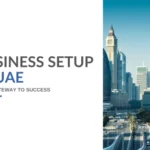Dubai’s dynamic economic landscape offers a plethora of opportunities for entrepreneurs and businesses looking to establish or expand their operations. The city’s strategic location, state-of-the-art infrastructure, and investor-friendly climate are just a few reasons why it continues to be a global business hub. When setting up a company in Dubai, the primary decision revolves around choosing between a mainland or free zone jurisdiction. Understanding the nuances of each can significantly influence your business’s operational capabilities and growth potential.
Mainland Dubai vs Free Zone: A Comparative Analysis
- Jurisdiction and Business Activities
Mainland Dubai: Governed by the Dubai Department of Economy & Tourism (DET), mainland companies can conduct business without territorial restrictions, serving clients within the UAE, the broader GCC region, and beyond. This includes the ability to trade in the local market and take on government contracts.
Free Zones: Tailored for specific industries, free zones are designated areas with their own set of rules and regulatory bodies. Typically, these zones are geared towards businesses that target markets outside the UAE, though certain free zones now offer dual licensing options for onshore and offshore activities.
- Ownership and Legal Framework
Mainland: With the Federal Decree-Law No. 26 of 2020, foreign investors can enjoy 100% ownership in over 1,000 commercial and industrial activities on the mainland, barring certain strategic sectors.
Free Zones: They allow full foreign ownership across all companies, providing a straightforward and international business ownership structure.
- Taxation
Mainland: A 9% Corporate Tax is levied on profits exceeding AED 375,000, along with a 5% VAT. However, there is no personal income tax, which is an advantage for business owners and employees alike.
Free Zones: They offer extensive tax benefits, including complete exemptions from corporate tax, customs duty, VAT, and income tax, along with the freedom for capital and profit repatriation.
- Audit and Emiratization Requirements
Mainland and Free Zones: Both require annual audits without distinction, ensuring financial transparency and regulatory compliance.
Mainland: There is a mandate for mainland companies to include at least 2% of their skilled workforce from Emirati nationals, aiming to increase local employment.
Free Zones: Such Emiratization quotas do not apply, offering more flexibility in the composition of the workforce.
- Legal Entity Types
Mainland: Offers a wide array of legal structures, catering to various business needs from partnerships to joint-stock companies and sole proprietorships.
Free Zones: While also providing various legal forms, the most common structures include Free Zone Establishments, Free Zone Companies, and branches of existing companies.
- Office Space and Presence
Mainland: Requires a physical office space, with a minimum size stipulation, to uphold a tangible business presence within the local economy.
Free Zones: Flexible workspace solutions are permissible, with virtual offices and flexible desks being viable options for companies looking to minimize physical footprint.
- Capital and Visa Requirements
Mainland: No standardized minimum share capital requirement exists; it is determined based on the chosen legal form of the business.
Free Zones: The minimum share capital is variable across different zones and is dictated by the specific free zone authority.
Mainland: Visa allocations are linked to office size and business activity, but with no upper limit, aligning with the business scale.
Free Zones: Visa quotas are regulated by the respective free zone authority, with provisions for increases based on business needs.
#DubaiBusinessSetup #MainlandVsFreeZone #UAEEntrepreneurship
#DubaiInvestmentClimate #BusinessInDubai #DubaiFreeZones
#CorporateTaxUAE #DubaiMainlandCompany #GlobalBusinessHub
#StartupDubai #JKConsultations J K Management Consultancies
This comparison aims to provide entrepreneurs with a clear understanding of the critical differences between mainland and free zone company setups in Dubai. Whether your business seeks to tap into the local market or operate internationally, Dubai’s diverse economic environment has the capacity to support your ambitions. Both mainland and free zone entities have their unique advantages and requirements, and the choice depends on your business model, target clientele, and long-term strategic goals. As always, it’s advisable to consult with a business setup specialist in Dubai @jkconsultations.comto navigate the complexities of company formation and to ensure compliance with all legal and regulatory mandates.
+971502914059
J K Mangement Consultancies
Dubai, UAE















